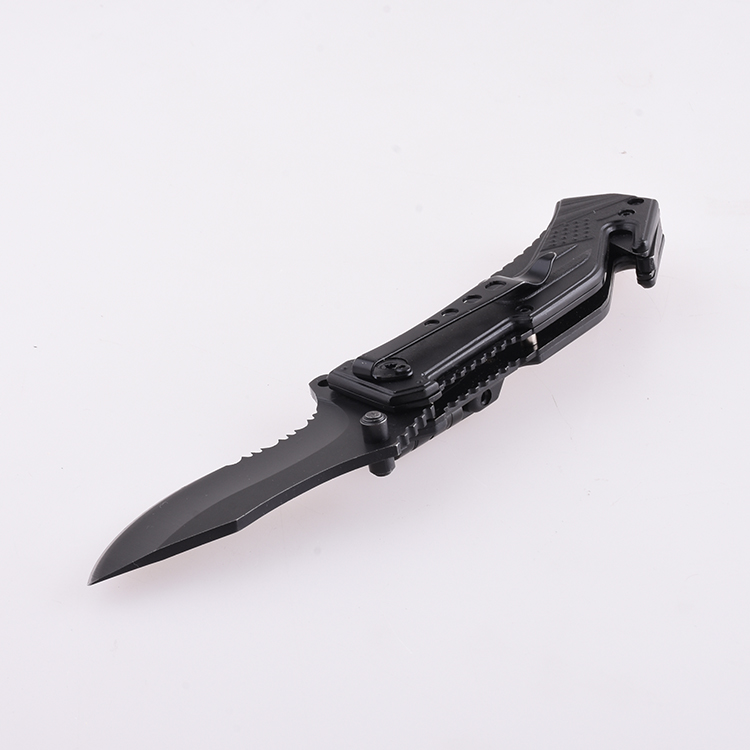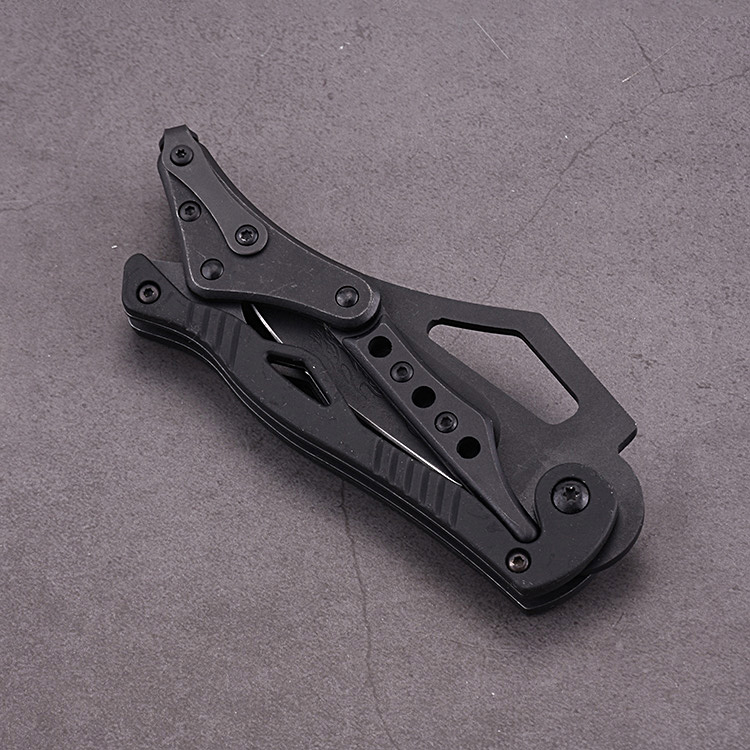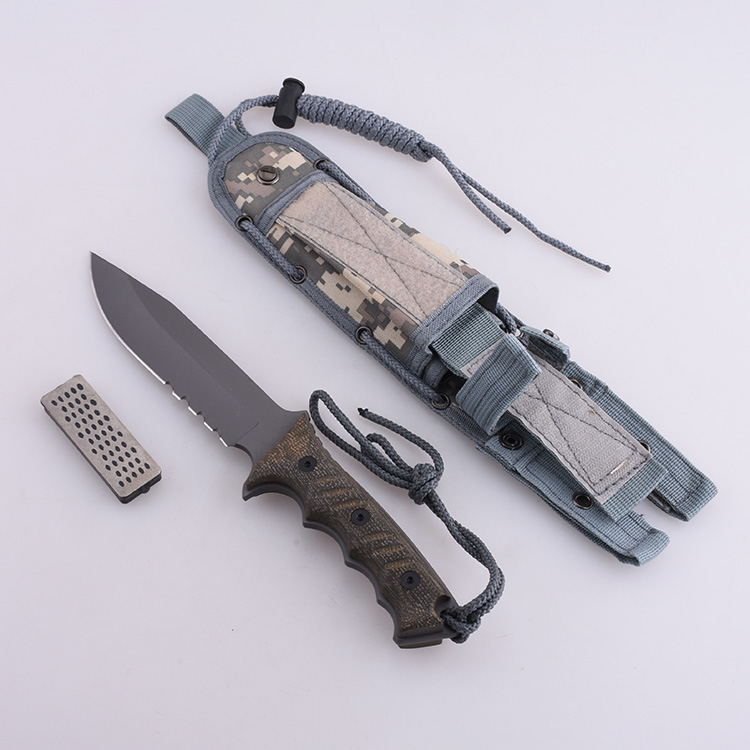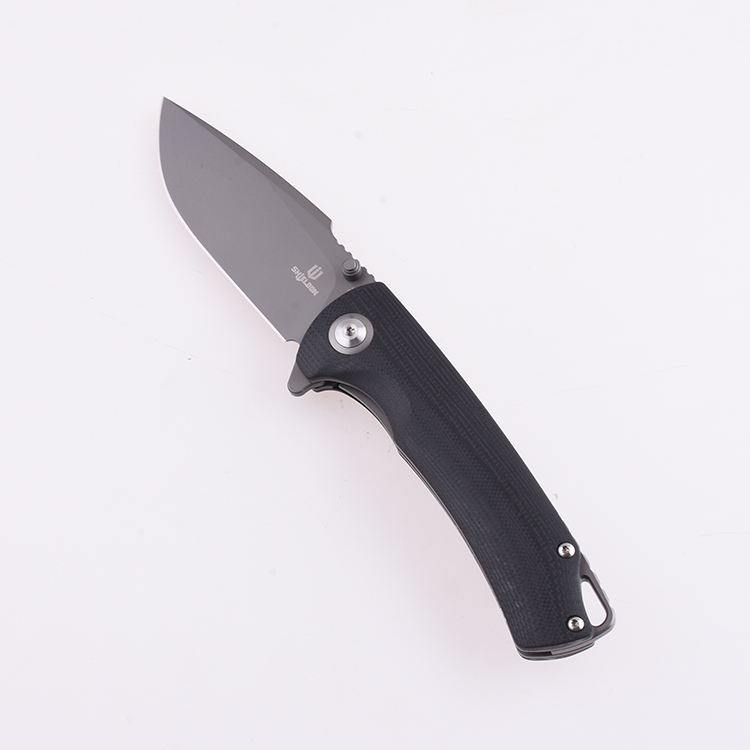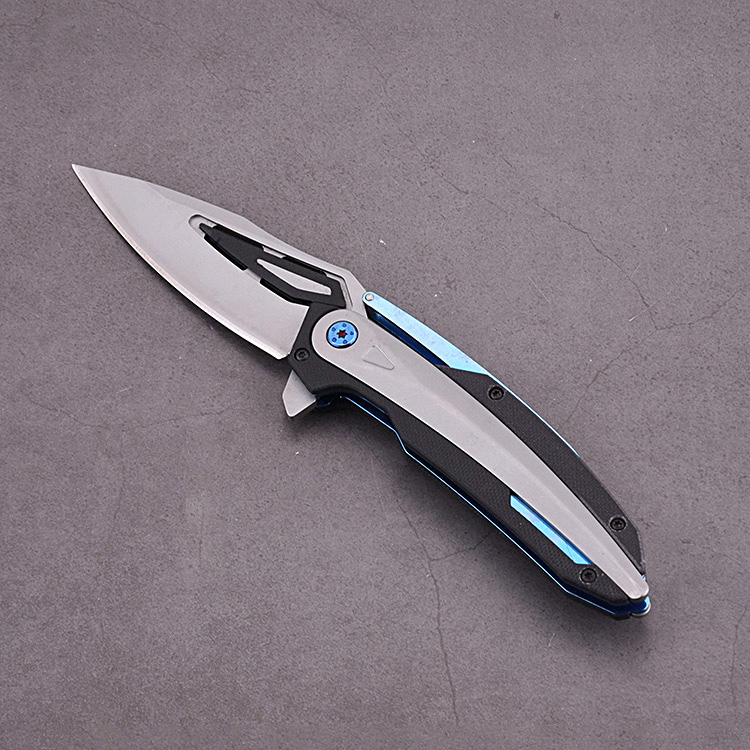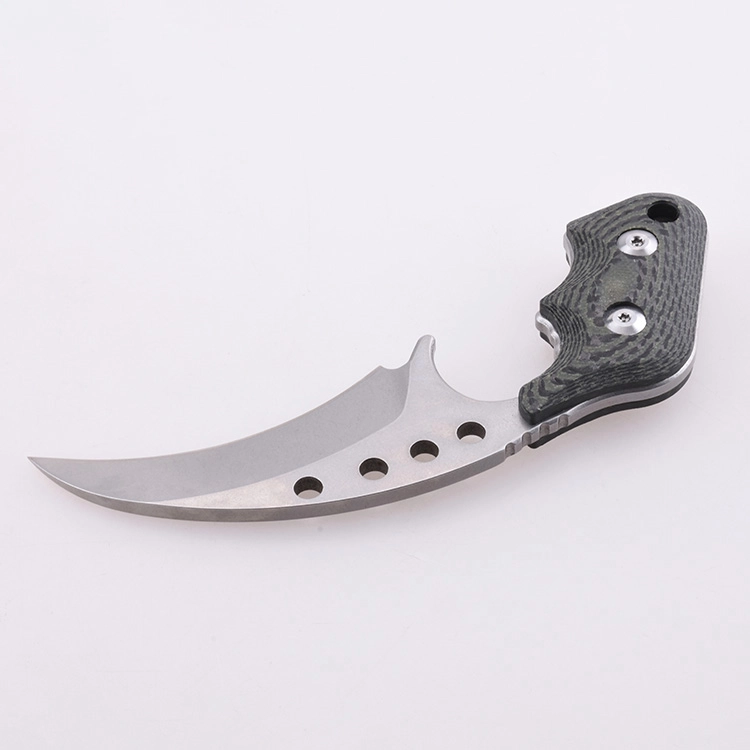Pocket knives, often known as folding knives, are small and convenient bladed tools. When closed, most pocket knives are small enough to fit within an adult’s hand, making them difficult to detect.
For this reason, they are often classified as “concealed weapons” in many jurisdictions. The blade of a lanseta is its most recognizable feature, and it comes in a wide variety of styles that we briefly outline here.
Drop-Point Blade
Most self-defense pocket knives use this general form. The blade is single-sided and sharp, and it’s very short for its width. This results in a gentle decline that is easier to navigate.
As a result, the blade is just marginally shorter than the handle, which provides a comfortable grip. Blades with a drop point are ideal for slicing and peeling.
Clip-Point Blade
This nearly looks like a drop-point blade, but it’s more robust and has a clip on the spine. It’s a multipurpose blade that’s so sturdy it can be put to work in situations that would break lesser blades.
The clip-point blades of survival knives are ideal for detailed cutting and slicing. If you’re going to be carrying a blade, this is the one.
Tanto Blade
Japan is the birthplace of the tanto blade, which is often considered to be among the most aesthetically pleasing blade designs available.
A powerful blade with a square profile and a compact grip are its distinguishing features. The sharp edge is ideal for piercing and stabbing, but it has many other applications as well. The tanto blade is very durable, making it the perfect survival knife.
Spear-Point Blade
You can tell it’s a pocket knife since the two sides of the blade have the same degree of slant. In this configuration, the spearlike tip of the blade is centered. This knife is great for slicing and stabbing and is often employed as a defense weapon.
This knife’s dual-use nature makes it a useful tool when it’s in good shape. Many owners of this knife utilize it as a throwing knife, and as such, it is often regulated as a weapon in most countries.
Blunt Tip Blade
This odd weapon features a spear’s sharpened blades on each side of a blunted tip.
This multipurpose tool is often used by sailors, kayakers, and divers to sever lines and ropes due to its unusual design.
A knife like this wouldn’t be the greatest choice for campers seeking a tactical blade, but it would be perfect for kayakers and other watersports enthusiasts.
Trailing-Point Blade
Hunter blades are often seen in knives with a rear that curves sharply upward. This makes the knife’s edge very curved and sharp, perfect for swiftly piercing and slicing through the animal hide.
However, it has been discovered that the design of this blade is quite unstable and that the user may easily injure themselves by slipping their fingers over the grip.
Blade ng Hawkbill
As its name implies, this is the inverse of the Trailing blade, with its distinctive curve pointing downwards. Even though the outer curve, which has the longest side, may be sharpened to make a cutting edge, most people use the inner curve instead.
This is not a utility knife, since its form makes it unsuitable for anything beyond precise tasks like trimming string or pruning small trees and shrubs.
Straight Blade
As the standard for pocket knives, this is the blade most often seen. The straight blade offers it more penetrating strength and the design is more historically accurate.
In addition, they’re intended to be hefty in order to improve their slicing ability.
The blades are sturdy and reliable, making them ideal for use outdoors, but they may also be put to use in the kitchen if standard knives are unavailable.
The hilt of the handle is typically spherical and has a groove for the blade to fold back in, hence the majority of knives have a similar form.
Sheepsfoot Blade
This is a frequent blade type carried by emergency responders since it exemplifies efficiency and safety. It makes a clean cut and is safe to use in close quarters without endangering the user’s hand.
This is because of its unusual construction, which offers it a blunt tip and a thick enough back for a hand to exert pressure from above without the object piercing into the hand.
In the past, this blade was often used to clip the toes of sheep, thus the name.
Takeaways
Many more variations of pocket knife blades exist, much too many to list here. Everyone agrees, though, that these blades are among the most useful you’ll find.
When you have a moment, stop by our website. Shieldon – OEM knives have all the answers to your inquiries regarding pocket knives.
Maaari mo rin kaming sundan sa mga sumusunod na paraan:
https://www.facebook.com/ShieldonCutlery
https://www.instagram.com/shieldon_knives_and_tools/
https://www.youtube.com/channel/UC_Dz–HODWHFY4AaUF0z11Q
https://twitter.com/Shieldonknives1/
https://shieldonknivesandtools.tumblr.com/
https://www.linkedin.com/company/72285346/
https://www.pinterest.com/shieldonknivesandtools/
Higit pang mga pagpapakilala sa video:

